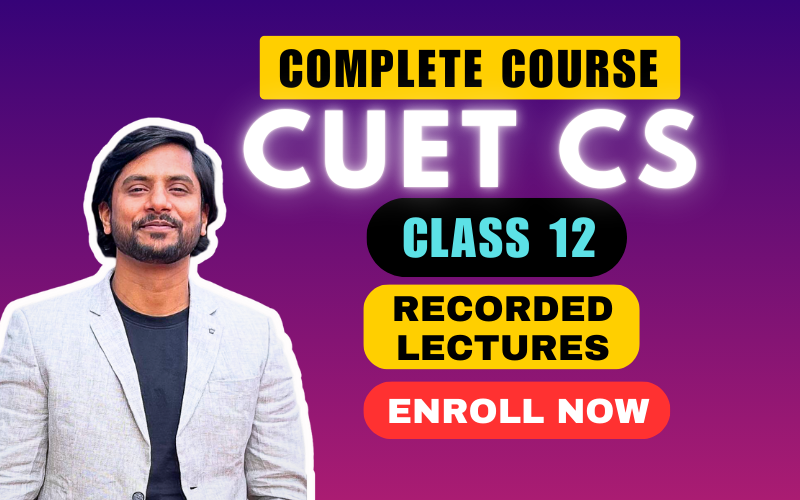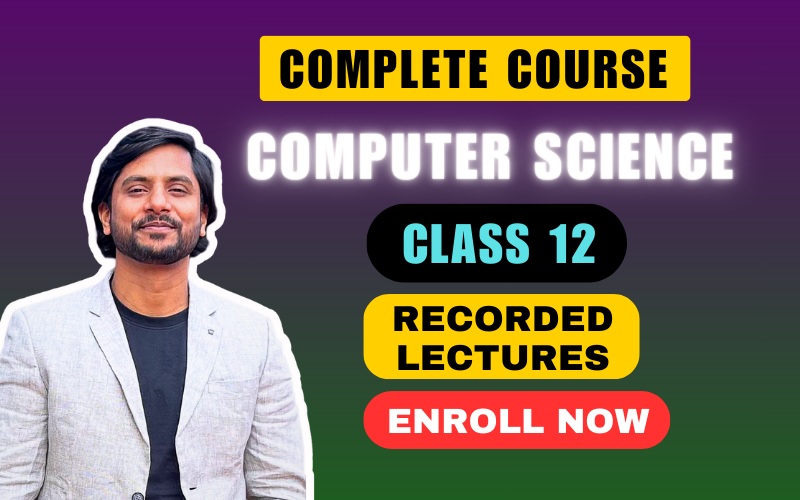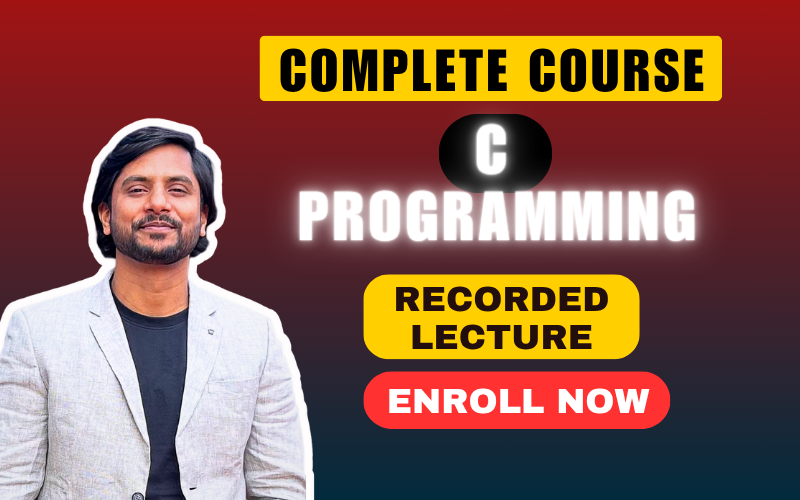Complete C Programming Course By Anand Sir Online LiVE Class Recorded Lecture
in ProgrammingWhat you will learn?
Comprehensive Coverage: Gain in-depth understanding of key concepts in C programming.
Flexibility: Learn at your own pace and schedule, fitting your studies around your other commitments.
Expert Instruction: Access high-quality teaching from Anand Sir, ensuring clarity and depth in your learning.
Convenience: Study from anywhere with an internet connection, eliminating the need for physical attendance.
About this course
Dear Learner,
Welcome to the Complete C Programming Course. This self-paced online course offers pre-recorded videos of classes conducted by Anand Sir. You have the flexibility to complete the video course on C programming highlighting key points.
The Online Face-to-Face Zoom Class is offered at a budget-friendly price, ensuring that it remains more affordable compared to other options. This cost-effective approach allows more students to access the course and prepare effectively for their exams.
"C" Highlights:
- Expert Instruction: Anand sir has more than 15+ years of teaching experience so he teaches student in such most easiest way that student can understand easily for guarantee.
- Hands-on Projects: Hands-on projects are included in the course.
- Comprehensive Material: You will get in-depth, comprehensive material.
- Community Support: You can directly ask about your issue from your course dashboard, forums or community support for doubt-clearing and discussion.
- Certification: You can ask for certification upon course completion for added value.
1. Introduction to C Programming
- History and Importance: Brief history, its impact on modern languages, and its relevance today.
- Course Overview: What the course will cover, expected outcomes, and prerequisites.
2. Fundamental Concepts
- Basic Syntax and Structure: Explanation of C syntax, structure of a C program, compiling, and running a program.
- Data Types and Variables: Introduction to various data types (int, float, char), variable declaration, and scope.
3. Operators and Expressions
- Arithmetic Operators: Usage of addition, subtraction, multiplication, division, and modulus.
- Relational and Logical Operators: Comparison and logical operations.
- Bitwise Operators: Introduction to bitwise manipulation.
4. Control Flow
- Conditional Statements: If-else, switch-case.
- Loops: For, while, do-while loops, and their applications.
- Jump Statements: Break, continue, goto, and exit.
5. Functions
- Function Basics: Declaration, definition, and calling functions.
- Parameter Passing: Pass by value and pass by reference.
- Recursion: Concept of recursive functions.
6. Arrays and Strings
- Array Declaration and Initialization: Single and multi-dimensional arrays.
- String Handling: String functions and manipulation.
7. Pointers
- Introduction to Pointers: Pointer syntax, pointer arithmetic, and pointer operations.
- Dynamic Memory Allocation: malloc, calloc, realloc, and free.
- Pointers and Arrays: Relationship between pointers and arrays.
8. Structures and Unions
- Defining Structures: Syntax, nested structures, and array of structures.
- Unions: Definition and difference from structures.
9. File Handling
- File Operations: Opening, reading, writing, and closing files.
- File Modes: Different modes for file operations.
10. Conclusion
- Summary of Key Points: Quick recap of what has been learned.
- Next Steps: Suggestions for further learning and advanced courses.
Visual and Content Tips
- Interactive Quizzes: Include quizzes and interactive content to keep students engaged.
- Real-world Case Studies: Showcase real-world case studies.
Happy Learning!
Suggested by top companies
Top companies suggest this course to their employees and staff.

Requirements
Only Phone or Laptop or Computer or Smart TV with Internet Connection
C Programming compiler Software
Related Courses
Comments (0)
In this video, the basics of the C Programming Language has been explained. In addition the different types of programming terminologies and related definition terms along with syllabus has been explained.












